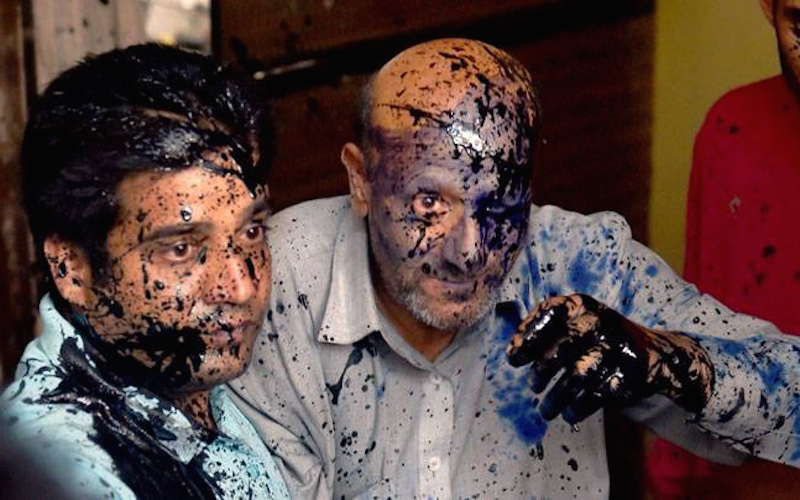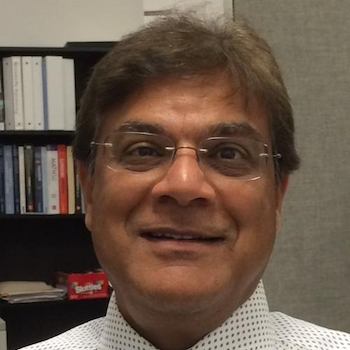
India Embraces Intolerance
The recent flurry of announcements for returning national awards by artists, scientists, historians and other scholars has fostered an unprecedented storm of debate on what they consider the “rise of intolerance in Indian.” A number of award winning intellectuals expressed their concern regarding the fate of India’s democratic values such as freedom of speech and expression citing the killing of Professor Kalburgi for denouncing idol worshiping by angry Hindu hardliners. Several other incidents such as the killing of a Muslim man near New Delhi and the pouring of ink on a politician from the State of Jammu & Kashmir for hosting a beef party on the lawn of a government building added more fuel to that debate.
India’s main opposition party, the Indian National Congress Party, politicized those issues by organizing a protest march, under the leadership of Mrs. Sonia Gandhi, to President Pranab Mukherjee’s residence to convey the “atmosphere of fear, intolerance and threat in the country.” The timing of returning awards by important individuals and a protest march to the Rashtrapati Bhavan by the Congress Party obviously points a finger towards the ruling Bartiya Janta Party (BJP) government for supporting or at least not controlling individuals, groups and organizations espousing right-wing ideology.
Of course, it is quite possible that the right-wing ideology may have gained some momentum after the massive victory of the BJP, a political party with a center-right position on the political spectrum, but it will be inexact to hold the BJP, and the Prime Minister Modi, responsible for encouraging vehement behavior by right-wing individuals and groups.
A person little familiar with India will know that incidents similar to these have occurred in the past. It would also be irrational to presume reoccurrences of similar unfortunate events are unlikely. Likewise, the right-wing ideology and organizations supporting that ideology were there even during the British rule and may continue to exist in India for decades to come. But politicizing every lawbreaking incident in India, holding the central government responsible for each of them and expecting the Prime Minister to speak on every occurrence of violent acts do nothing but lessen the reputation of the Congress Party.
Last year’s huge victory and the possibility to complete a full five years term by of a political party with the center-right political view may be a new experience for a young democracy like India, but it is a regular event in other mature democracies in the world including the United States and the United Kingdom. Similarly, violent activities by individuals belonging to some groups often take place in different parts of the world, but the criminal justice system takes care of those offenses. India has a proven criminal justice system that takes care of these problems.
Interpretation of these incidents by opposition parties as a danger to Indian democracy is an unreasonable exaggeration clearly aimed to score a political point. It is also utterly puerile for intellectuals to portray these events as a threat to Indian democracy and a threat to freedom of speech and expression thus creating a sense of insecurity within the country. Holding the central government liable for every criminal event in India and to expect or force the head of the state to speak and react to each unlawful episode in the country is absolutely unnecessary and unreasonable.
On the other hand, it is also a reality that individuals, groups and originations with a right-wing ideology are excited and have become exceedingly vocal ever since the BJP has come to power. But that should not be a reason for the intellectuals in India to be furious. They have lived in a comfort zone and have enjoyed complacency under the center-left governments in India for decades. If differing ideologies co-exist in other democracies why so much excitement in India from intellectuals?
India has set an extraordinary example of nurturing democracy in modern history. It was challenging for the founders of the nation to lead the country on the path of real democracy following independence from British rule, because no country was as diverse as India during the initial years of fostering a democratic system. A geographically large country which is a birth place of four religions and where people speak hundreds of dialects is a unique and strong democracy with 1,866 registered political parties, including two major communist parties.
The 2014 election was a major change for Indian democracy and the new lesson; “Introduction to Center-Right Government in India” will help Indian people, organizations, and political parties become more tolerant toward conservative and liberal thoughts. The current situation in India is not alarming at all for democracy, minorities, and individuals with far left or far right views as it has been portrayed by some groups and individuals; it is nothing but a learning curve for everyone in the country and once it is over; democracy in India will be a notch stronger than what it is today.

